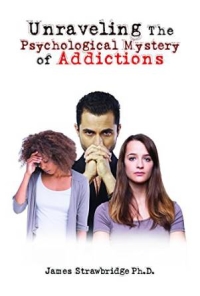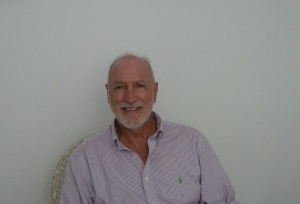Title: Unraveling the Psychological Mystery of Addictions
Author: Dr. James M. Strawbridge
Publisher: Green Ivy
ISBN: 978-1942901501
Pages: 152
Genre: Non-Fiction/Health/Self-Improvement
Author Interview with Dr. James M. Strawbridge
Interviewed by: Tania Staley, Pacific Book Review
Against all odds, Dr. James Strawbridge rose from humble beginnings growing up in a small southern town in North Carolina. The only child of divorced parents, money was scarce in the post-depression years and he had little hope of education beyond high school. However, as a star football player he was offered a college scholarship to East Carolina University where he excelled. His dreams of professional football ended with a back injury during his senior year. After graduation he was offered a job selling insurance. Again he excelled. However growing up he suffered with depression that is now recognized as bi-polar. This led to an alcohol abuse problem that plagued him over the years.
After many years as a regional manager of a billion dollar life insurance company, when his company was sold he returned to college. At age 67 he obtained a Doctorate in Psychology with a specialization in Addiction Psychology.
As a Certified Addiction Professional and an Internationally Certified alcohol and Drug Counselor he has lectured on both addictions and associated mental health issues countrywide. His published research has been recognized for its contributions to the addiction field. He has written feature stories and columns for national newspapers.
An avid outdoors man he has climbed to the top of Mt. Hood and hiked the Grand Canyon.
Today we are talking to Dr. James M. Strawbridge, author of “Unraveling the Psychological Mystery of Addictions”.
PBR: What motivated you to write Unraveling the Psychological Mystery of Addictions?
I have observed that many important facts about dealing with addiction relationships haven’t been covered in other books of the subject. And, the underlying sources, such as early family problems and genetic factors leading to addictions, have been overlooked.
PBR: Your book consists primarily of interview transcriptions from both addicts and family members of addicts. How important is it for the recovery process to share personal stories, and why?
Over the years beginning with the founding of Alcoholics Anonymous, it was discovered that by sharing addiction experiences with others either in a one-on-one or in a group setting treatment of the problem begins. This applies to the many other addictions such as gambling, sex, etc.
PBR: You mention in your book that many of your patients requested the opportunity to have their story shared in your writing. What do you think motivated them to share so freely? Is there something that can be learned from their desire to share that can help others more wary to open up?
Help through sharing their road to recovery is a reciprocal experience and they want to give back to show that it is possible to manage their problem.
PBR: You repeatedly stress in your text the importance of seeking the help of groups such as Alcoholic Anonymous. However, alcoholism often accompanies behavioral disorders, such as anxiety. What sort of steps do you recommend for addicts who may find group settings to be uncomfortable or even harmful?
One might begin by seeing a physician who might discover a physical cause. If the physician discovers an underlying mental cause is a possibility, he will recommended seeing a psychiatrist or psychologist for further help.
PBR: Alcoholics Anonymous is certainly the most well-known support group for addicts, but are there any other organizations that you would recommend looking to for support?
I’ve already listed some off these organizations in the back of my book.
PBR: What advice do you give to family and friends trying to get help for addicted loved ones?
As pointed out in my book, it begins with the realization that someone, friend or family, needs help that they are at a loss to solve. This is when what is known as an “intervention” can begin the help that is needed. The process is explained in my book.
PBR: Do you have any more books or other projects you would like to share with readers?
I am developing a website, Addictions Rx based on my newspaper question and answer columns of the past.
To learn more about “Unraveling the Psychological Mystery of Addictions” please read the review at:




Follow Us